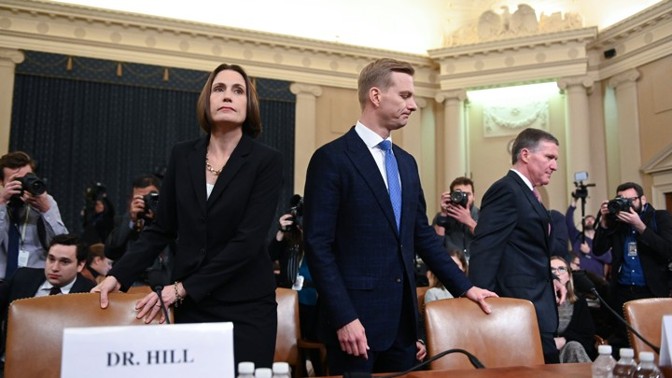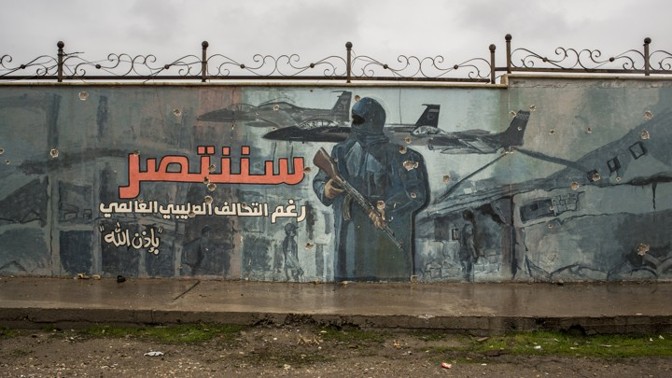“The Trump cult can’t be swayed; our side can’t be swayed. So we need to persuade the people who are just living their lives and ignoring the situation …” — Jenny Braithwaite, a 63-year-old educator
“I’m reassured, that [democracy] in this country is not completely kaput.” —65-year-old Sulyporn Bannon Kulsrethsiri
*
« SNAPSHOT »
(MANDEL NGAN / GETTY)
In the fall of 2016, the Michigan Republican Party website listed the full name of the chairwoman of the Republican National Committee. Today, the RNC website omits her maiden name, and lists her only as Ronna McDaniel. Her uncle? Someone newly quite outspoken.
*
« IDEAS AND ARGUMENTS »
Fiona Hill and David Holmes take their seats before a House Intelligence Committee hearing. (ERIN SCOTT / REUTERS)
1. Trump was never concerned about Ukrainian corruption. But he was determined to subvert American democracy, Adam Serwer argues:
The rest of the country, however, should not lose sight of why the president is being impeached, and it is not because of a good-faith dispute over Ukraine policy. Trump and his advisers conspired to rig the 2020 election on his behalf, scheming to defraud the American people of a free and fair election.
2. How did Medicare for All become a mainstream health care solution to so many Democratic primary contenders? Our health reporter Olga Khazan writes:
In a way, the rallying cry of single-payer harkens back to President Barack Obama’s use of, in the dark days of the 2008 recession, uplifting slogans like “Hope,” “Change,” and “Yes, we can.” Most people didn’t know exactly how “hope” would lead us out of economic gloom. But just as with health care today, they were pretty sure it couldn’t get any worse.
*
« WEEKEND READ »
(MARTYN AIM / CORBIS / GETTY)
ISIS has lost its leader and most of its land, but what comes next could mirror the same steps the insurgent group used to survive and grow after splintering from Al-Qaeda and storming the world stage in 2014, Kathy Gilsinan and Mike Giglio report:
ISIS will probably retain its core in Iraq especially, but in Syria as well—as Zelin noted, the group is comfortable underground in its territory and has survived this way before—with connections to supporters and affiliates around the globe. From there, it can bide its time.
*
Today’s edition of our daily newsletter of political ideas and arguments was written by Saahil Desai and Christian Paz, and edited by Shan Wang.
You can reply directly to this newsletter with questions or comments, or send a note to politicsdaily@theatlantic.com.
Your support makes our journalism possible. Subscribe here.
We want to hear what you think about this article. Submit a letter to the editor or write to letters@theatlantic.com.
Source link
 Black America Breaking News for the African American Community
Black America Breaking News for the African American Community




